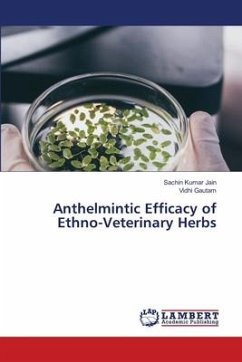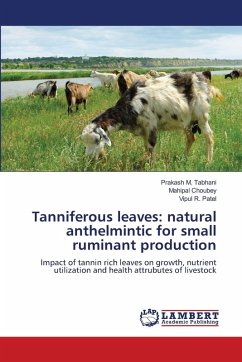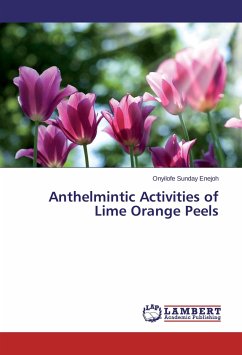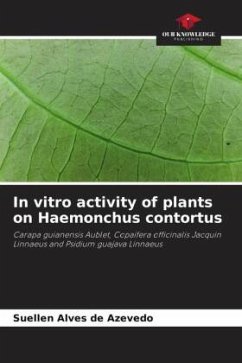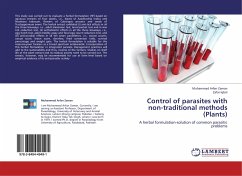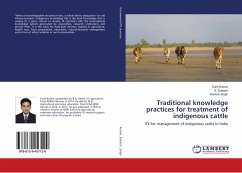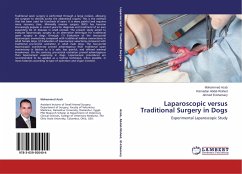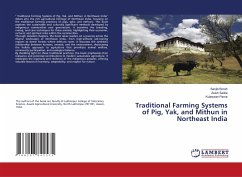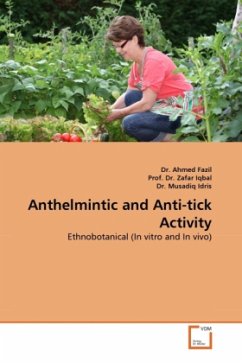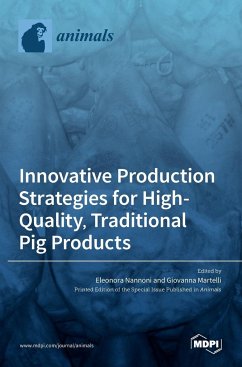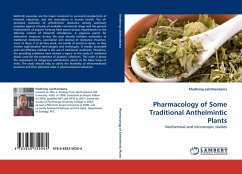
Pharmacology of Some Traditional Anthelmintic Plants
biochemical and microscopic studies
Versandkostenfrei!
Versandfertig in 6-10 Tagen
32,99 €
inkl. MwSt.

PAYBACK Punkte
16 °P sammeln!
Helminth parasites are the major constraint in successful productivity of livestock industries, and the conundrum in human health. The all-pervasive evolution of anthelmintic resistance among veterinary parasites against virtually all available commercial drugs and the general endorsement of organic farming have posed serious impediments to the effective control of helminth infestations. A vigorous search for alternative measures during the past decade includes evaluation of traditional medicines, vaccination and reversal of resistance. However, most of these, if at all they work, are hardly o...
Helminth parasites are the major constraint in successful productivity of livestock industries, and the conundrum in human health. The all-pervasive evolution of anthelmintic resistance among veterinary parasites against virtually all available commercial drugs and the general endorsement of organic farming have posed serious impediments to the effective control of helminth infestations. A vigorous search for alternative measures during the past decade includes evaluation of traditional medicines, vaccination and reversal of resistance. However, most of these, if at all they work, are hardly of practical values, as they involve sophisticated technologies and techniques. A readily accessible and cost-effective method is the use of traditional medicines. Therefore, the prevailing problems have revived a vigour to the study of medicinal plants used for the treatment of parasitic infections. This work is about the assessment of indigenous anthelmintic plants of the Mizo tribes of India. The study should help to clarify the feasibility of ethnomedicinal practices and their potential roles in pharmaceutical industries.



